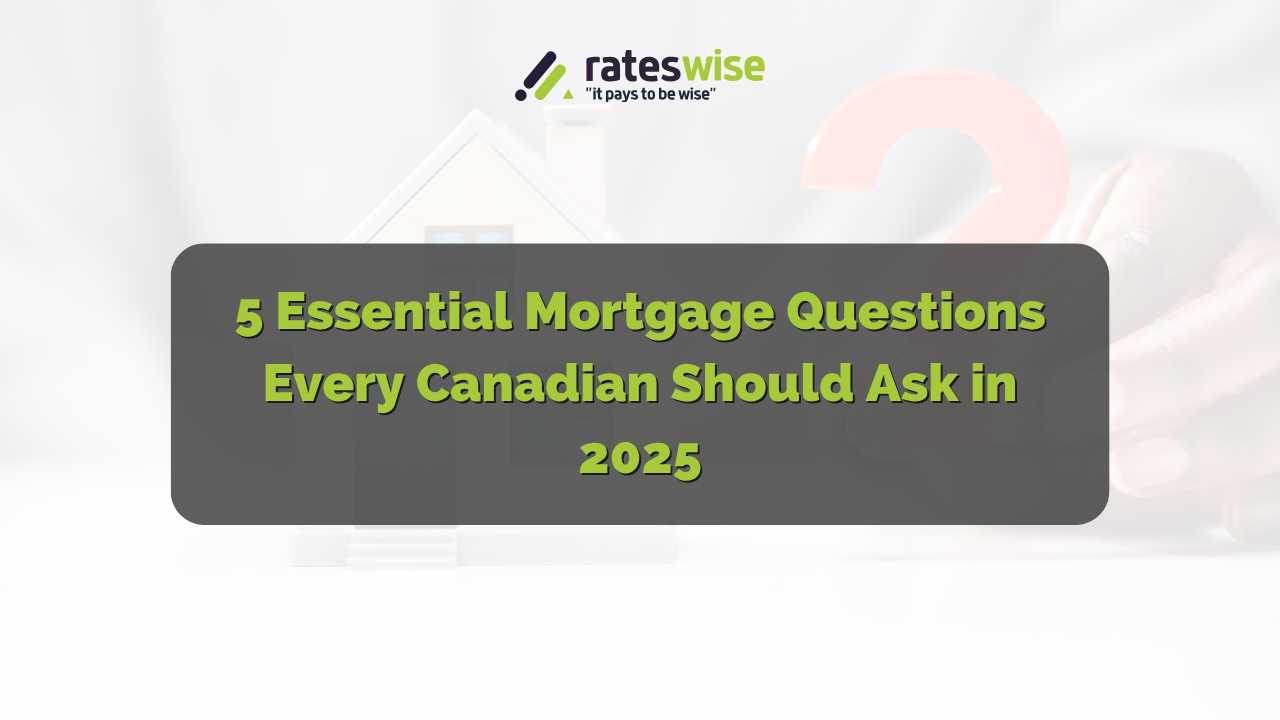5 Essential Mortgage Questions Every Canadian Should Ask in 2025

Getting a mortgage in Canada can be pretty overwhelming, especially if you're doing it for the first time.
Asking the right questions upfront can save you thousands of dollars and a lot of headaches down the road. Here's what you need to know before you sign anything.
What questions should you ask a mortgage advisor?
When you sit down with a mortgage advisor, don't be shy about asking these questions. Remember, they work for you, not the other way around:
What's the best rate you can get me?
Are you charging me any fees?
Can you break down fixed vs. variable rates for my situation?
What term length makes sense for me?
What happens if I want to pay extra or pay off early?
Tip: Every advisor should be able to explain this clearly. If they can't, find someone else. A good advisor will take the time to make sure you understand everything, especially if you're a first-time buyer.
Should I use a mortgage broker or a bank?
This is probably the most common question I get asked, and honestly, both options have their merits.
Going with a mortgage broker means:
- They'll shop around with multiple lenders to find you options
- You might snag a better rate than walking into a bank solo
- They handle a lot of the paperwork
- Some charge fees, others get paid by the lender (always ask which)
Sticking with your bank means:
- You're dealing with people who already know your financial history
- The approval process might be faster
- No broker fees to worry about
- But you're limited to whatever products they offer
My take: If you've got the time and want to explore all your options, a broker can be worth it. But if you have a solid relationship with your bank and they're offering competitive rates, there's nothing wrong with keeping things simple.
What’s the best way to borrow money?
Look, there are a million ways to borrow money these days, but when you're buying a house, stick to the safe option.
Start by getting pre-approved. I know it's an extra step, but it gives you a realistic budget and shows sellers you're serious. Plus, it locks in your rate for a few months while you house hunt.
Don't just take the first offer you get. Shop around, even if it's just calling a few different places. Rates can vary more than you'd think.
And please, keep your credit score healthy throughout this process.
*Avoid high-interest personal loans or borrowing more than you can comfortably afford.
How to compare mortgage lenders?
This part can get overwhelming, but focus on these key areas:
- Interest rates (fixed vs. variable)
- Fees (set-up costs, penalties, prepayment options)
- Customer reviews and service quality
- Loan terms (short-term vs. long-term)
Remember: the lowest rate isn't always the best deal. I've seen people save 0.1% on their rate only to get hit with massive penalties later.
What is the difference between a mortgage lender and a mortgage broker?
This confuses a lot of people, so let me break it down simply:
- A mortgage lender is the one who gives you the money. This could be a bank, credit union, or private lender.
- A mortgage broker helps you shop for the best mortgage by comparing offers from multiple lenders.
Some brokers work exclusively with certain lenders, while others have access to dozens of options. Either way, they should be upfront about their relationships and how they get paid.
Think of it this way: The broker finds the deal. The lender gives you the loan.
About the Author
Written by the Rateswise Team
The Rateswise Team is composed of veteran mortgage brokers, advisors, and financial content creators who are passionate about empowering Canadian homebuyers. We believe that asking the right questions is the first step toward securing a great mortgage. This guide is a reflection of our collective experience helping thousands of Canadians compare lenders, understand complex terms, and navigate the borrowing process with confidence.